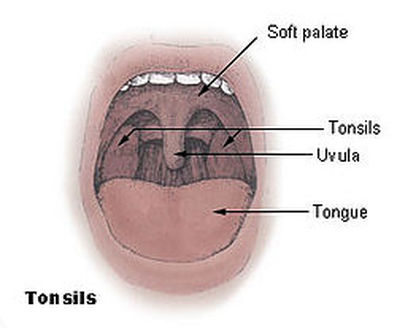Awareness | Tuning | Rounded Vowels | Nasal Vowels | English Tendencies | Consonants | Phonetic Notation Key
The French Consonants
In contrast to vowels, which you make by completely opening the vocal tract, you make consonant sounds by momentarily blocking the vocal tract while expelling air. Fortunately, there are only two consonant sounds in French that do not exist in English.
Since French and English rely on different writing systems, there is a large tendency for English speakers to mispronounce French words when reading them, so I use symbols to replace these sounds.
Since French and English rely on different writing systems, there is a large tendency for English speakers to mispronounce French words when reading them, so I use symbols to replace these sounds.
The Strange Consonant Symbols
In this section I will review the three consonant sounds that DO exist in English but use different symbols in IPA. Commit these relationships to memory as soon as possible.
/j/
|
|
/ʃ/
|
Note: The Soundcloud audio player does not recognize the /ʃ/ symbol, so it has been arbitrarily replaced with an epsilon symbol. Please disregard.
|
/ʒ/
|
|
Even though this sound exists in English, you may have difficulty articulating it. It helps to know how the sound is made. If you take the /ʃ/ sound from before and add your voice to it (vibrate your vocal cords instead of just blowing out voiceless air) you will get this /ʒ/ sound.
The audio below shows this. Do the drill I do to develop your awareness of the /ʒ/ sound.
The audio below shows this. Do the drill I do to develop your awareness of the /ʒ/ sound.
Semi-Vocalic Consonants
There are two consonants sounds that aren't really consonants, but need review anyway. They are called "semi-vocalic" because they are more or less vowel sounds, but they just occur quickly and at the beginning of a syllable, functioning like a consonant. Listen below to figure out what I mean.
/w/
|
|
/ɥ/
|
|
The New Consonant Sounds
There are two consonant sounds that do not exist in exist in English. We will review them below.
/ɲ/
|
|
/ʁ/ and /X/
These sounds use a part of your speech organ called the "uvula" (pictured below). This is never used in English.
Because we never use the uvula, these sounds/movements will be the most challenging ones for you to master on your road to French Flow mastery.
Because we never use the uvula, these sounds/movements will be the most challenging ones for you to master on your road to French Flow mastery.
Don't worry though, as you can learn any motor skill with proper practice.
For now, we will just review a few key points.
For now, we will just review a few key points.
- You make this sound by raising the back of the tongue against OR near the uvula.
- It can be Voiced OR Voiceless (i.e. your vocal cords will either vibrate or not vibrate).
- The /ʁ/ represents voiced and the /X/ represents voiceless.
- English speakers have a tendency to replace this sound with an English "r" sound, as in the word (roar). Do NOT do this. While you work on perfecting the sound, replace it with whatever throaty sound you can muster.
Remaining Consonants
Below is a list of the remaining consonant sounds in French. Note: these sounds are pronounced exactly as they are in English writing so there should not be any ambiguity.
|
m
p b f |
n
t d s |
z
l k g |
Congratulations! You're now introduced to every possible French sound. I know it was a lot of information and you probably weren't able to completely absorb it all. But that is completely fine. This Primer is more of a reference than anything else.
As you gain more experience with the French sounds, your mental framework will start to take form and you will revisit these pages with a better understanding. So don't let this be the last time you check out the sound system primer.
As you gain more experience with the French sounds, your mental framework will start to take form and you will revisit these pages with a better understanding. So don't let this be the last time you check out the sound system primer.
Once you are comfortable with everything on this page, review the IPA symbols on The Phonetic Notation Key
Awareness | Tuning | Rounded Vowels | Nasal Vowels | English Tendencies | Consonants | Phonetic Notation Key


